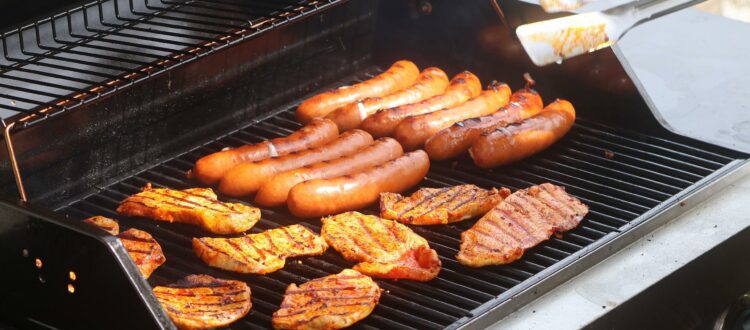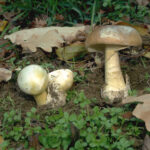
Fundraisers are a great way to raise money for your community organisation but at the same time you need to make sure that it doesn’t become a food poisoning risk. Local rules for non-profit fundraisers can vary slightly depending on the State or Territory where you live but generally these tips cover what you need to do to ensure food is safe:
1. Appoint someone to be the event supervisor to make sure your volunteers are following food safety rules. Also try to have a separate person taking the orders and money so your cooks can concentrate on handling the food safely.
2. Ensure hand washing facilities with soap are available. Always wash your hands with soap and running water and dry thoroughly on a single use paper towel before handling food and after handling raw meat or poultry, going to the toilet, touching your face or hair, blowing your nose, leaving the food stall or shaking hands.
3. Wear clean clothing and a clean apron.
4. Never handle food for others if you are feeling unwell.
5. When transporting food, only travel a short distance and make sure the food is covered and in a cool place in your vehicle e.g. in the air conditioned vehicle rather than the boot. Transport food that needs refrigerating in a cooler with ice bricks. Keep food cool under 5°C until you are ready to cook it.
6. Use a probe meat thermometer to check that the sausages, hamburger patties and poultry are cooked to at least 75°C in the thickest part of the meat. Cook these foods as close as possible to the time of sale. Steaks, chops and whole pieces of meat should be cooked to 63 °C (medium rare) using a meat thermometer and left to stand for 3 minutes to kill any bacteria and parasites such as Toxoplasma gonddii. As a guide: well done is 77°C, medium 71°C and medium rare 63 °C (leave to rest for 3 minutes).Clean your thermometer between uses with a sterile wipe.
7. Don’t put cooked meat or poultry back on the same container that raw meat or poultry has been on or use the same utensils, such as tongs, for raw and cooked foods.
8. Prepare and serve ready-to-eat products such as bread, salad items and cakes etc. on a clean surface and away from raw meat to avoid cross-contamination.
9. Wash any equipment such as chopping boards and knives in hot soapy water and dry thoroughly before using again. Tea towels can get contaminated quickly so you may wish to use paper towel.
‘If you run a cake stall don’t include riskier ingredients such as fresh cream or raw or partially cooked eggs. Make sure cakes are covered to protect them from insects and people sneezing on them. While you don’t have to include an ingredient list of allergens on the product, be aware of any allergens in the cake (such as milk, eggs, peanuts and tree nuts, gluten and wheat, soy, sesame and lupin) so you can tell a customer if asked. Label the cake with the name of its maker so that, on the rare occasion something does go wrong, the food can be traced.
‘You may need to register your fundraising event with your local Council so contact their environmental health officer and get more food safety advice,’ Ms Moir concluded.
For more information see:
Local Council food enforcement contacts
Food Standards Australia New Zealand Fundraising events
NSW Food Authority Charity events
Queensland Health Fundraising events
Victoria Department of Health Sausage sizzles
ACT Department of Health Fundraising stalls



